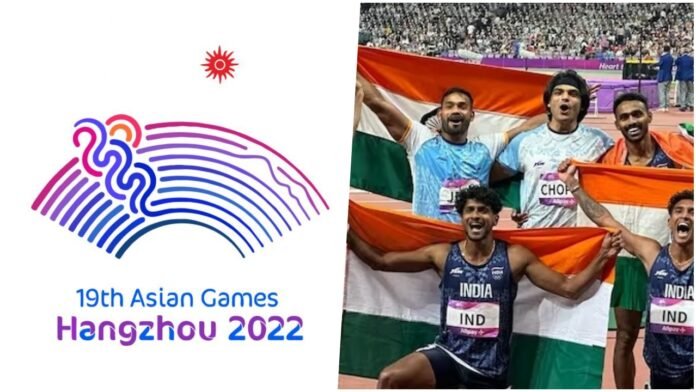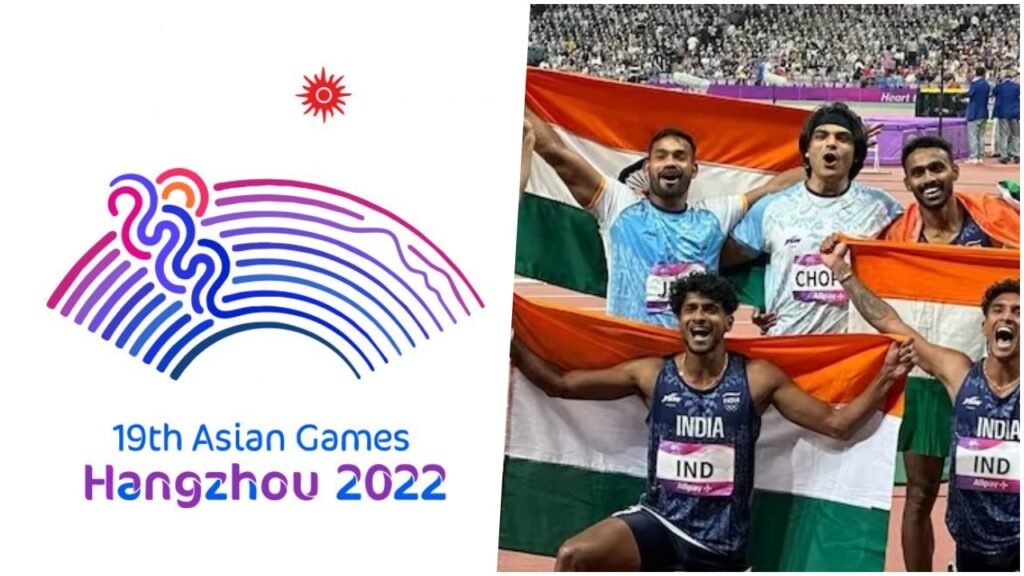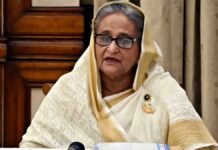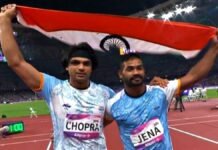
New Delhi: India ended its spectacular campaign at the Hangzhou Asian Games on Saturday with a record-breaking haul of 107 medals, including 28 gold, 38 silver, and 41 bronze. This was the highest number of medals ever won by India at any Asian Games edition, surpassing the previous best of 69 medals at the 2018 Jakarta Games. India also achieved its best-ever rank of fourth in the medal table, matching its performance at the 1962 Jakarta Games when it finished third.
India added 12 more medals to its tally on the final day of the Asian Games, which saw more than 14 days of intense competition across various sports and disciplines. India started the day with a bronze medal by Aditi Swami in the women’s compound individual archery event, followed by a gold medal by Jyothi Surekha Vennam in the same event. Ojas Pravin Deotale clinched another gold medal for India in the men’s compound individual event, while Abhishek Verma settled for silver.
The Indian women’s Kabaddi team continued their dominance in the sport by winning their eighth consecutive gold medal at the Asian Games, defeating Chinese Taipei in the final. The victory also marked India’s 100th medal at the Hangzhou Games, a historic milestone for the nation. The men’s Kabaddi team also won gold, beating Iran in a thrilling and controversial final that saw several disputes and protests from both sides.
The Indian badminton contingent also had a golden day, as the star pair of Satwiksairaj Rankireddy and Chirag Shetty won the men’s doubles title, beating Indonesia’s Mohammad Ahsan and Hendra Setiawan in a nail-biting match. The duo became the first Indian pair to win an Asian Games gold medal in badminton.
| Rank | Country | Gold | Silver | Bronze | Total |
| 1 | People’s Republic of China | 200 | 111 | 71 | 382 |
| 2 | Japan | 51 | 66 | 69 | 186 |
| 3 | Republic of Korea | 42 | 59 | 89 | 190 |
| 4 | India | 28 | 38 | 41 | 107 |
| 5 | Uzbekistan | 22 | 18 | 31 | 71 |
| 6 | Chinese Taipei | 18 | 20 | 28 | 66 |
| 7 | IR Iran | 13 | 21 | 19 | 53 |
| 8 | Thailand | 12 | 14 | 32 | 58 |
| 8 | Bahrain | 12 | 2 | 5 | 20 |
| 9 | DPR Korea | 11 | 18 | 10 | 29 |
The Indian men’s cricket team also made history by winning their first-ever gold medal at the Asian Games, beating Pakistan by seven wickets in a low-scoring final. The Indian bowlers restricted Pakistan to 101 for nine in 20 overs, before captain Shikhar Dhawan led the chase with an unbeaten 51 off 36 balls.
The Indian women’s hockey team also ended their campaign on a high note, beating Japan 2-1 in the bronze medal match. The Indian team bounced back from their semi-final loss to China and scored two goals in the first quarter through Gurjit Kaur and Vandana Katariya. Japan pulled one back in the third quarter through Minami Shimizu, but India held on to secure their second consecutive bronze medal at the Asian Games.
Deepak Punia added another silver medal to India’s tally in the men’s 86kg freestyle wrestling event, losing to Iran’s Hassan Yazdani in the final. Punia put up a brave fight against the world and Olympic champion, but could not overcome his superior opponent.
The Indian chess teams also won two silver medals in the men’s and women’s team events, finishing behind China in both categories. The men’s team comprised of Viswanathan Anand, Vidit Gujrathi, P Harikrishna and B Adhiban, while the women’s team consisted of Koneru Humpy, D Harika, Tania Sachdev and Bhakti Kulkarni.
With 107 medals and 28 gold, India secured their fourth-place finish in the medal table, ahead of other Asian powerhouses like Iran, Kazakhstan, and Uzbekistan. China topped the medal table with 289 medals, including 133 gold, followed by Japan with 207 medals, 52 gold, and South Korea with 193 medals, 42 gold.

The Hangzhou Asian Games was a historic event for India, showcasing its sporting prowess and potential on the continental stage. India won medals across various sports and disciplines, such as athletics, boxing, shooting, wrestling, hockey, badminton, cricket, kabaddi, chess, and archery. India also witnessed several breakthrough performances by its young and talented athletes, such as Neeraj Chopra (gold in men’s javelin throw), Lovlina Borgohain (gold in women’s welterweight boxing), Manu Bhaker (gold in women’s 10m air pistol), Avani Lekhara (gold in women’s 10m air rifle standing SH1) and Pramod Bhagat (gold in men’s singles SL3 badminton).
The Hangzhou Asian Games also marked a new era of cooperation and friendship among Asian countries, as it was held amid the COVID-19 pandemic that had disrupted many sporting events around the world. The host city of Hangzhou did a commendable job of organizing a safe and successful event that saw more than 10,000 athletes from 45 countries and regions participate in 40 sports and 462 events. The Hangzhou Asian Games also featured several new and innovative elements, such as the use of 5G technology, drones, robots, and virtual reality.
The Hangzhou Asian Games also set the stage for the next edition of the event, which will be held in Nagoya, Japan, in 2026. India will look to build on its impressive performance at Hangzhou and aim for even higher glory at Nagoya, as it strives to become a global sporting powerhouse.















































